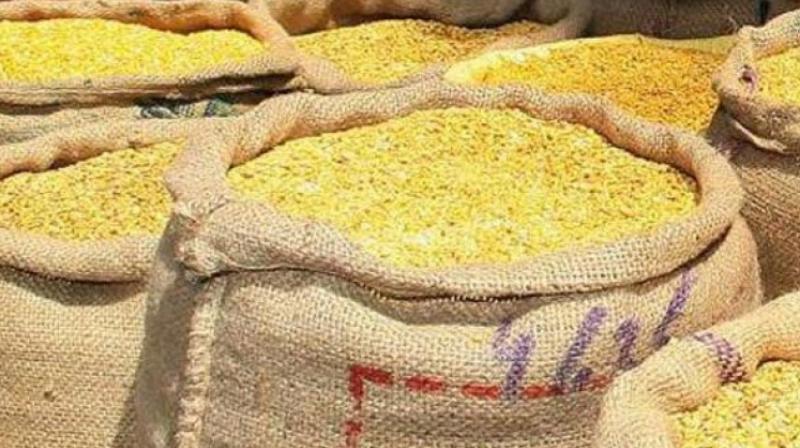Processed Kesari Dal safe, finds Vizag nutritionist
Its sale for human consumption is allowed only in Chhattisgarh, Maharashtra and West Bengal.

Visakhapatnam: While a debate on consumption of Kesari Dal, also called grass pea, is on, a five-year long study by a city-based nutritionist revealed that processed kesari dal is safe for consumption. Soaking the dal overnight makes it safe for consumption, it said.
The consumption, cultivation, and sale of Kesari Dal was banned in 1961 across the country on fears that it contains beta-N-oxalyl-amino alanine (ODAP). A neuro-toxic, amino acid, in the legume causes neurolathyrim or a paralysis of the lower limbs, it was believed.
Its sale for human consumption is allowed only in Chhattisgarh, Maharashtra and West Bengal. While a research panel headed by the Indian Council of Medical Research (ICMR) has cleared consumption of Keasri Dal. Food Safety and Standards Authority of India (FSSAI) is yet to take a decision on it. The Indian Institute of Toxicological Research had called for more scientific efforts to make it safe.
Kesari Dal processed by soaking and by boiling as well as in its raw form was tested on rats at the Andhra University’s labs.
As part of the study neuro-toxicological evaluation of muscle coordination activity in Albino Wistar rats was done by employing the models of Rota-rod Apparatus Model and Inclined Screen Test Model.
“The muscle coordination among rats fed with processed Kesari Dal samples was better compared to rats fed with raw seeds. This might have been due to decreased ODAP content. The soaked and boiled samples showed much better muscle coordination. Samples collected from AP were found to have better muscle coordination activity compared to samples collected from other states. This indicates that the processing of Lathyrus sativus (Scientific name of Kesari Dal) seeds helps to offset the effect of ß-ODAP which might be responsible for its good muscle coordination activity. The Dal needs to be soaked for at least six hours or overnight before being cooked and consumed,” said Sujatha Yerra, of Andhra University’s college of science and technology who studied the nutritional, anti-nutritional factors and neuro-toxicological evaluation of grass pea.
Grass pea is the staple food in many states due to the abundant presence of proteins and other vital nutrients. It is a cheap source of a poor man’s protein rich food, she added.
The grass pea crop is generally of a high grain yield nature. It is a promising vital economic crop as it is endowed with varied attractive qualities of tolerance to droughts, floods, moderate salinity and extreme climatic environmental conditions.

